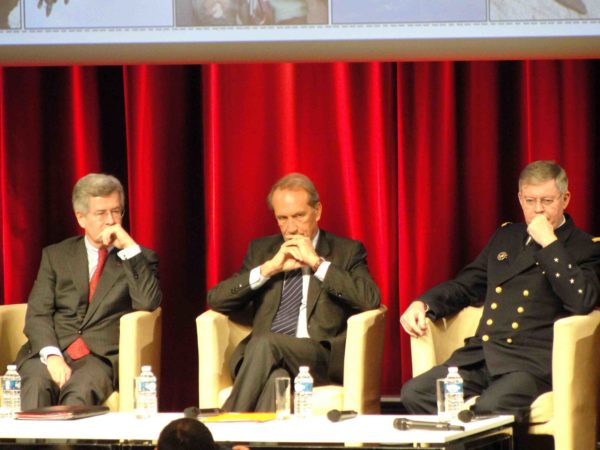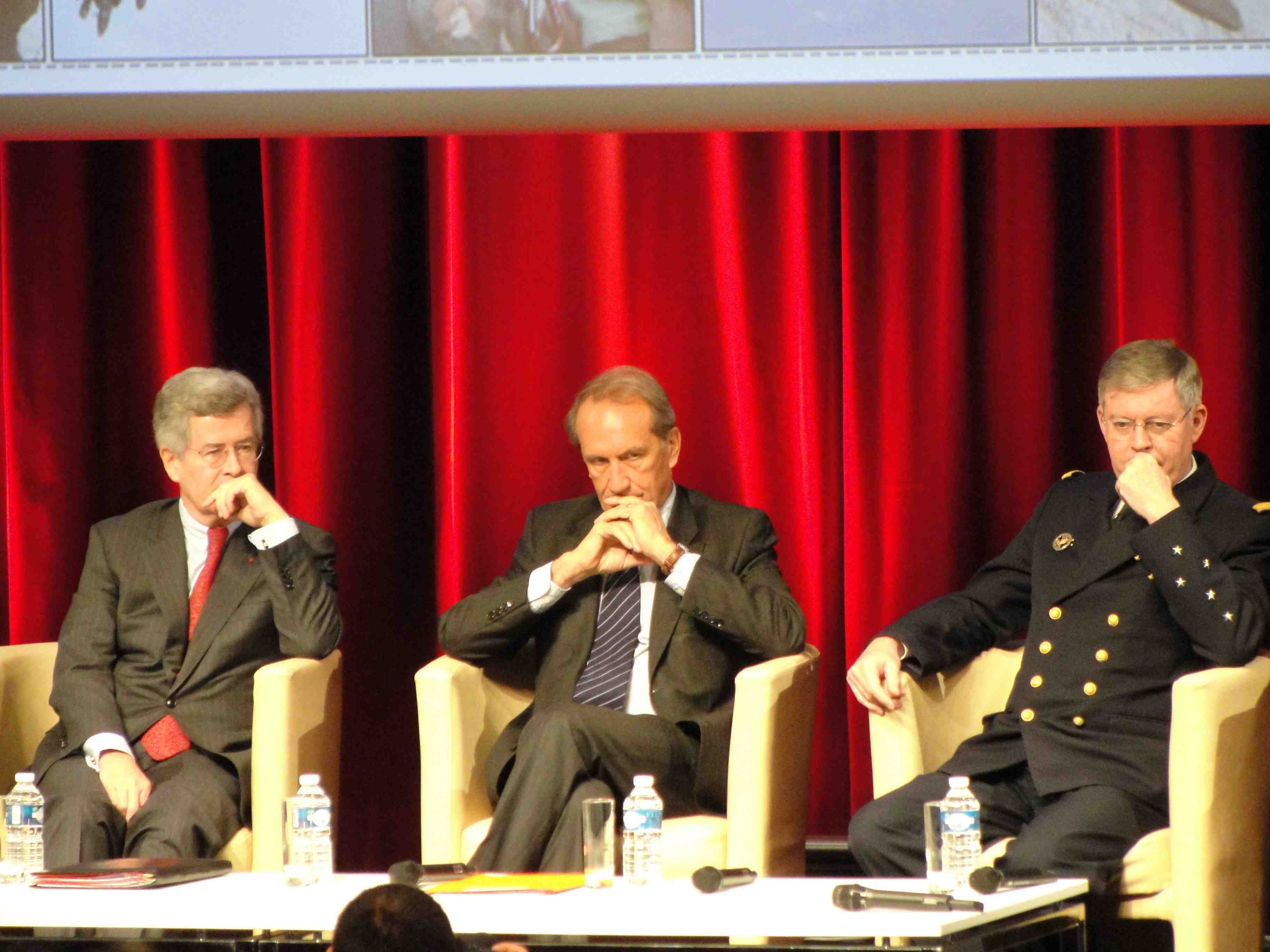The French asset: its chain of command, fast, reactive, unique...

(BRUXELLES2 in Paris) This is the leitmotif that came up most often in the mouths of the speakers at the opening of a conference "a look at a year of operational commitments". Drawing lessons from the interventions in Côte d'Ivoire and Libya essentially, the French Minister of Defense who opened the meeting welcomed the " strength given by our institutions ».
Being a member of the security council requires responsibilities
« France takes its rank from one of the five permanent members of the Security Council explained Gérard Longuet, taking the opportunity to explain how careful we had to be with regard to the enlargement of the permanent members of the Security Council. " To be a member, you need some international experience and a reflex of responsibility, a reflex that spreads very slowly. ».
The French asset: a clear boss, a reactive chain of command
The Constitution is also an asset compared to parliamentary armies where " any commitment decision is subject to the approval of parliament. It's still good in a crisis to have a clear boss “explains the Minister. And pan in the teeth of Germany.
The French touch in the NATO operation in Libya
The Libyan example proves it. For Libya, we started planning an intervention in February - explains the Chief of Staff, Admiral Edouard Guillaud. We had promised that the first strikes would take place within 5 minutes of the decision. This assumes that our planes had already been flying since then. But they could turn around at any time. It is an extremely short, reactive chain of command that avoids discussing the sex of angels when it is necessary to act. »
The gunboat policy no longer exists
On the other hand, the minister denied any French expansionist desire. " The gunboat policy no longer exists. We no longer cruise (with) the Panther off Agadir. It was in the time of William II, before 1914. The objective today is to implement decisions of international law ". If necessary, France provokes these decisions. " the policy of the president (Sarkozy) is very clear: obtain an international decision, but we only intervene on an international decision. According to him, there are two risks: decide alone without an international decision or obtain decisions without being able to implement them”.
The return to NATO command useful
As for France's return to NATO's integrated command, it has not produced the feared effects, according to Minister Gérard Longuet. The operation in Libya has shown that we can " show solidarity and continue to take the initiatives that were necessary to bring added value to the theater of operations without waiting for a consensus ».
...but still quite to the point
However, all is not yet perfect. It takes a little oil in the wheels to listen to the military. Among the lessons of the crisis, for General Didier Castres, " We still have to learn about NATO, place our officers to be in a position to be able to have the influence we can. Air Corps General Antoine Noguier, Commander of Air Defense and Air Operations is more direct. You have to avoid making certain mistakes again. and enter directly into the chain of command. Do not go with the British and then the Americans to Ramstein to arrive in Naples a little too late, the places being taken »
Ready to go
Have these interventions exhausted intervention capacities? Major General Didier Castres, Deputy Chief of Staff Operations, does not believe it. " From December, we will have reconstituted most of our ammunition capacities, the Charles De Gaulle will have (recovered), it will take another 1-2 months to redo the training of the pilots. From next year, we are able to deal with a succession of crises like this year. »
Read also:



Comments closed.